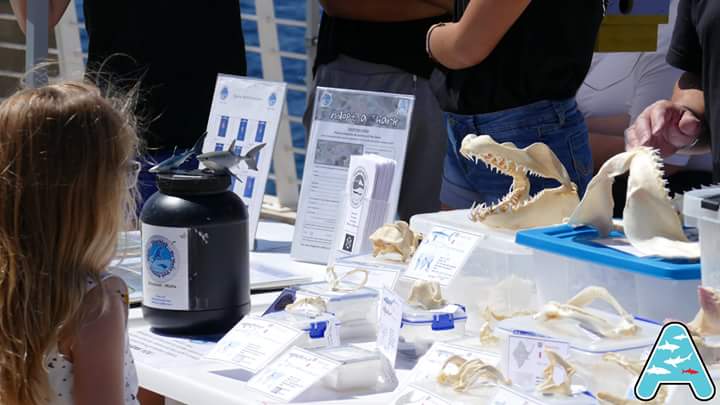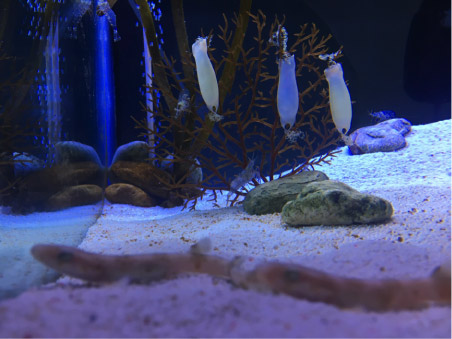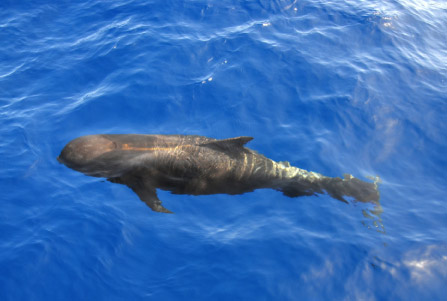From the market to freedom: Sharklab and the Malta National Aquarium are saving lives!
During this episode for research and conservation we are going to look at the awesome world of sharks, and how two brave Maltese organizations are impacting their interesting lives.
Sadly for these misunderstood, beautiful creatures, often the first words we think about when we hear the word “shark” are often connected with negativity. We think of the scary “jaws” theme, we remember that one story we heard about a poor Australian surfer who lost his leg, or life… we might even think of our own fears of the deep, but hardly do we ever think of just how majestical they really are.
The media has played her part in ensuring shark’s notorious reputation, and this is sad and unjust… sharks are far from all that, in fact we now know just how intelligent this apex predator is, and we fully understand why preserving them is crucial for the lives of our ocean.
The fall of such an impressive creature is cruel, but organisations around the world have done worked tirelessly to ensure their plight gets stopped and one of these hero companies is indeed a local organization called Sharklab, who you might have seen raising awareness at our sandy beaches during the summer months.

The magical work from Sharklab and the Malta National Aquarium begins with the shark which i soften caught as bycatch by local fishermen. A tiny, fragile case is extracted, which houses the embryo of the shark. These are often brought up accidentally by fisherman as by catch – and being so small it is an easy mistake to make. Each case is 90mm long and 30mm wide and must be handled with care. Local fishermen have struck a relationship with Sharklab members and thankfully these eggs find themselves in the right hands shortly after being caught.
Sharklab then can pass the eggs to the biology team at the Malta National Aquarium, where they are incubated and monitored until the tiniest of sharks can hatch in regulated water conditions. So far Sharklab, with the help of several dive schools, have released a total of 289 sharks, which is fantastic news to us all. Their main focus has been on the nursehound pups and the small spotted cat sharks.
Their care does not end there. Since they are born up to 3cm long they must be nurtured and fed until they are rendered as strong enough to survive in the wild. The incubation period can be between 9-11 months, and regular check ups take place.

The adventure continues as they are carefully boxed up and drven to the shore, and at different intervals Sharklab head to Cirkewwa for release days where scores of little Nursehounds are freed by careful Scuba Divers. The underwater team ensure they are given a good send off in their new habitat.
The Mediterranean Sea used to be a good little spot for sharks. Temperate waters, and a host of fish to hunt, they used to thrive here until overfishing kicked in, wiping out numbers drastically. These days, unfortunately we hardly hear for a shark spotting – and yes that is a problem for reach and everyone of us.
Overfishing is ruining our seas, from the sea beds to the coral reefs, to our very own beaches. The list of endangered species of fish is growing at a fast rate, and most of it is happening due to human greed. We’ll discuss the why and the who in a future blog post, and we will also provide you with all the tips you need to make a massive difference.
Why the war on sharks?
The population of sharks has been under attack since media campaigns running in the 1940s promoted the culling of these “sea monsters”. Humans have always feared them and craved to be on top of the food chain and through advertisement, mass shark culls were promoted.
Sensational movies like Jaws only serve to increase the hype against sharks, and though such films pushed the boundaries of movie making technology, viewers can’t help but feel a chill down their spine when they hear the infamous theme tune while swimming in the deep blue.
Footage of the US Navy engaging in cullings can be seen on the award winning documentary Sharkwater, a must watch for all shark fans. The only warning we give you is to keep a box of tissues nearby…
Sharks are also killed pointlessly as in certain Asian countries, their fins are used to make a soup called Shark Fin soup. Initially a meal served to the elite, these days it is served in abundance in the likes of Vietnam and China and each year between 23-73 million sharks are de-finned, and left to die in our ocean. Populations of hammerhead sharks take a massive hit due to their increased fin ray count. In some areas, the hammerhead seen a decline of over 90%, according to IUCN.

Traditional fish culls are also common in the Faroe Islands where an annual event sees hundreds of Pilot Whales slaughtered. Despite being an age old tradition, and even though countless of organisations protest the cull, old habits die hard, and the population of Pilot whales take a hit every year in Hvalvik. Back in the year 1200 the animal was hunted and fished for its blubber as it was both eaten and converted into oil which was used for lighting fuel and medicine. With technological advancements negating the need for such lighting fuels, surely it is time the cull ends? This year alone saw 150 whales killed in the Faroe Islands, a number which is unacceptably high for such a useless cull.
…As Bruce says in Finding Nemo “Fish are friends not food!”

World Ocean Day
The 8th of June was a significant day for the world as everyone celebrated World Ocean Day. Clean ups took place around many coastal areas around our world, including several on the Maltese Islands. It is terrific to see people getting involved to clean up our beaches, and we can not encourage this enough. Should you ever wish to take part in a clean up, feel free to get in touch here and join in. Whether it is a group of people doing it together, or just one person picking up one piece of plastic on his or her way to school, every little bit helps and Mother Nature appreciates every bit of help she can get.
Here a the Malta National Aquarium we held a special event where we collaborated with school kids who built a massive sculpture made from discarded plastics to help spread awareness and we also turned our piazza into a hive of activity, ending with our Solar Cinema, screening the award winning “Sonic Sea”… a must watch for all sea lovers.
Our Solar Cinema is an environmentally friendly way of watching a movie, making the cinema accessible to all, channeling the energy of our sun and make it our power source for a movie. This type of thinking outside the box reduces the impact of humans of our planet and in such a unique island we truly need to invest more into sustainable energy sources.
Collaborating with local schools and organisations like Birdlife, Sharklab, Ecomarine and Wasteserve is wonderful and when we all pull at the same rope, a real difference can be made.


